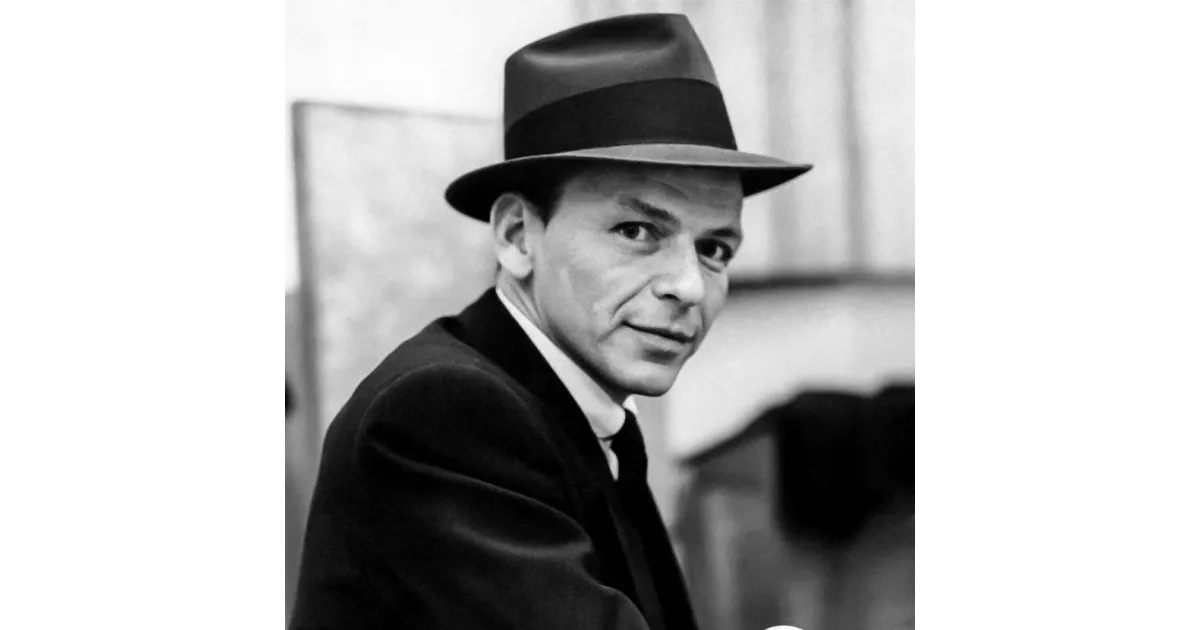A closer look at the biggest achievements of Frank Sinatra. Awards, milestones, and records that define success.
Frank Sinatra, nicknamed "Chairman of the Board" and "Ol' Blue Eyes", was a highly popular and influential American singer and actor of the 20th century. He is considered one of the best-selling music artists globally, with estimated record sales of 150 million. Sinatra's impact on music and entertainment remains significant.
October 30, 1947: Awarded Key to the City in Hoboken
On October 30, 1947, Frank Sinatra was awarded the Key to the City by Mayor Fred M. De Sapio in his native Hoboken.
1949: Awarded the Hollzer Memorial Award
In 1949, Frank Sinatra was awarded the Hollzer Memorial Award by the Los Angeles Jewish Community.
1958: Release of Come Fly with Me and Frank Sinatra Sings for Only the Lonely
In 1958, Frank Sinatra released "Come Fly with Me", a concept album with Billy May, which topped the Billboard chart and was nominated for a Grammy. On May 29, he recorded seven songs in one session. In September 1958, he also released "Frank Sinatra Sings for Only the Lonely", a collection of saloon songs and ballads that was commercially successful and remained on the Billboard chart for 120 weeks.
1959: Release of Come Dance with Me!
In 1959, Frank Sinatra released "Come Dance with Me!", a critically acclaimed album that remained on Billboard's Pop album chart for 140 weeks and won a Grammy Award for Album of the Year.
October 1960: Release of Nice 'n' Easy
In October 1960, Frank Sinatra's album "Nice 'n' Easy", a collection of ballads, topped the Billboard chart and remained there for 86 weeks, receiving critical acclaim.
September 1965: Release of September of My Years and The Frank Sinatra Spectacular
In September 1965, Frank Sinatra released the album "September of My Years", which won the Grammy Award for best album of the year. Also the Rat Pack concert, called The Frank Sinatra Spectacular, was broadcast live via satellite to numerous movie theaters across America
November 1, 1972: Raised money for Israel and received Medallion of Valor
On November 1, 1972, Frank Sinatra raised $6.5 million in bond pledges for Israel and was given the Medallion of Valor for his efforts.
1973: Comeback with Television Special and Album
In 1973, Frank Sinatra came out of retirement with a television special, "Magnavox Presents Frank Sinatra", and released the album "Ol' Blue Eyes Is Back", both of which were successful.
1976: Reunion of Dean Martin and Jerry Lewis and Awards
During Labor Day weekend in 1976, Frank Sinatra reunited Dean Martin and Jerry Lewis at the "Jerry Lewis MDA Telethon". In 1976, The Friars Club selected Sinatra as the "Top Box Office Name of the Century", and he received the Scopus Award from the American Friends of the Hebrew University of Jerusalem and an honorary Doctor of Humane Letters from the University of Nevada.
1979: Awards and Performance in Egypt
In 1979, during a party at Caesars, Frank Sinatra was awarded the Grammy Trustees Award, celebrating 40 years in show business and his 64th birthday. Also in 1979, former President Gerald Ford awarded Sinatra the International Man of the Year Award, and he performed in front of the Egyptian pyramids for Anwar Sadat, raising money for charity.
1983: Kennedy Center Honors
In 1983, Frank Sinatra was honored at the Kennedy Center Honors alongside Katherine Dunham, James Stewart, Elia Kazan, and Virgil Thomson. President Reagan quoted Henry James in honoring Sinatra.
1984: Honorary Doctorate of Fine Arts from Loyola Marymount University
In 1984, Frank Sinatra received an Honorary Doctorate of Fine Arts from Loyola Marymount University.
1985: Honorary Doctorate of Engineering from the Stevens Institute of Technology
In 1985, Frank Sinatra received an Honorary Doctorate of Engineering from the Stevens Institute of Technology.
1985: Awarded the Presidential Medal of Freedom
In 1985, Frank Sinatra was awarded the Presidential Medal of Freedom by Ronald Reagan.
1990: Ella Award and Performance with Ella Fitzgerald
In 1990, Frank Sinatra was awarded the second "Ella Award" by the Los Angeles-based Society of Singers and performed for a final time with Ella Fitzgerald at the award ceremony.
1994: Legend Award at the Grammy Awards
In 1994, Frank Sinatra was awarded the Legend Award at the Grammy Awards, where he was introduced by Bono.
1997: Election to the Gaming Hall of Fame
In 1997, in recognition of his association with Las Vegas, Frank Sinatra was elected to the Gaming Hall of Fame.
May 2008: Issuance of Sinatra stamp by USPS
In May 2008, the United States Postal Service issued a 42-cent stamp in honor of Frank Sinatra, commemorating the tenth anniversary of his death.
May 20, 2008: Designation of Frank Sinatra Day
On May 20, 2008, the United States Congress passed a resolution designating May 13 as Frank Sinatra Day.
2023: Rolling Stone's 200 Greatest Singers of All Time
In 2023, Rolling Stone ranked Frank Sinatra at No. 19 on their list of the 200 Greatest Singers of All Time.
Mentioned in this timeline

Martin Luther King Jr was a pivotal leader in the...

John F Kennedy JFK was the th U S President...

The White House located at Pennsylvania Avenue NW in Washington...
CBS Broadcasting Inc CBS is a prominent American commercial broadcast...
California is a U S state on the Pacific Coast...
The Kennedy Center Honors are annual awards recognizing individuals and...
Trending
51 minutes ago Tim NeCastro Announces Retirement as Erie Insurance CEO After 10 Years

3 hours ago Apple MacBook Pro: Touchscreen, Dynamic Island, and New Interface Coming Soon.

3 hours ago Microsoft and SpaceX Starlink Partner to Empower Global Community Internet and AI Economy
52 minutes ago Trump Announces Energy Deals and Rate Payer Protection Pledges at SOTU
3 hours ago Whitefox & Fluid Quip collaborate; Low-carbon ethanol boosted; Indoor plants aid climate resilience.

2 hours ago Ethereum Price Faces Resistance at $1,950 Amidst Market Repricing Concerns.
Popular

Jesse Jackson is an American civil rights activist politician and...

Susan Rice is an American diplomat and public official prominent...

Barack Obama the th U S President - was the...

Michael Joseph Jackson the King of Pop was a highly...

XXXTentacion born Jahseh Dwayne Ricardo Onfroy was a controversial yet...

Bernie Sanders is a prominent American politician currently serving as...
